The great Hannibal: well, what is the magnitude?
The name of the Carthaginian commander and statesman of antiquity Hannibal is known very widely. His victories and the famous “Hannibal's oath” brought him deserved fame. It would seem that with respect to this person everything is clear - a great commander, and what questions might there be? However, there are questions. Just want to emphasize that the purpose of this article is not at all the “exposing” the commander of antiquity. In the end, with his actions he earned himself deserved fame. The purpose of this article is to criticize contemporary authors who overly praise Hannibal and are not critical of primary sources. I also consider it necessary to note an important nuance - we did not receive any Carthaginian information about Hannibal. All that we know about him is the fruit of the creativity of the ancient Greeks and Romans. So, in order.
In the textbook stories For the 5 class of the ancient world, only four commanders of antiquity are mentioned: Alexander the Great, Pierre, Hannibal and Guy Julius Caesar. Dear readers, I can argue: "Well, what do you want from the textbook for the 5 class?" But if we open the 1-th volume of the History of Military Art Colonel, Professor A. A. Strokov, on the history of military affairs of ancient and medieval societies, we will see almost the same picture. Of the commanders of the time gap between Alexander the Great and Julius Caesar, only Hannibal is mentioned. Although a respected colonel and professor did not write his fundamental work for children. And again, readers may object to me: A. A. Strokov lived and worked during the years of the totalitarian political regime, he was simply obliged to write in a rigid ideological framework. And since the classic of Marxism and the retired Prussian cavalry officer Friedrich Engels enthusiastically wrote about Hannibal, A. A. Strokov should have done the same.
Well, well, let's say, Russia is not lucky with freedom of opinion, and we are opening a modern independent Internet resource, namely Wikipedia. And what do we see there? And we see there, at least, the same, if not even more enthusiastic apologetics. Here is a quote:
Here I would like to draw the attention of readers to the way information is presented in our time. A brief assessment is given, but by whom and on the basis of what facts it was made, it is not explained. I, for example, do not know who this very Theodore Iro Dodge is. His book was not translated into Russian and was not published in Russia. Therefore, I cannot say anything bad about the author and his work, but also good. It is sad only because Wikipedia tells us only the title that Mr. Dodge honored Hannibal, but is silent about what elements of the strategy the Romans borrowed from him? And are these elements so important that upon their borrowing they give Hannibal such a loud title?
And the second quote from the same Wikipedia:
Since the chronology of the Second Punic War is detailed in the same Wikipedia, and respected visitors to the site can easily read it, I will not quote it, but go straight to analyzing the campaigns and battles of Hannibal and their estimates by ancient authors, first of all Titus Livy. Why him? Yes, because it was Titus Livius who had the greatest number of documents relating to the very time of the war, which have not reached us. Although Polybius will often have to remember.
So, the initial period of the Second and the transition through the Alps. Narrating about the military forces of the Roman Republic before the beginning of the war, Polybius writes about the amazing courage of Hannibal. By itself, the courage of Hannibal does not cause doubts, the other is more interesting - no other opponent of Rome received such praise. Although the power of the Roman Republic grew, none of its enemies after Hannibal were the people of amazing courage even Polybius called. The reasons for the enthusiastic attitude of Polybius will be discussed below, and now we will analyze the result of the transition of the Hannibal army, through the Alps.
Titus Livius, referring to Lucius Zinzia Aliment, a man "who, by his own admission, was captured by Hannibal," writes that according to Hannibal himself, he had lost 36 thousand people when crossing the Alps. Polybius informs us that Hannibal went on a campaign, with ninety thousand infantry and twelve thousand cavalry. He singled out ten thousand infantry and one thousand cavalry to Gannon, and released as many more to their homes with the aim of having supporters in Spain being abandoned. With the rest of the army, which Polybius counts 50 thousand infantry and 9 thousand cavalry, Hannibal moved to Rodan (modern Ron). Here, Polybius has a discrepancy: if you take away from 92 thousands of 22 thousands, you get 70 thousands, not 59 thousands. Where 11 thousands of warriors were lost, Polybius does not report. From the crossing of Rodan, Hannibal, according to Polybius, went to the Alps, having already 38 thousand infantrymen and 8 thousand horsemen. Where 22 is still missing thousands of warriors, Polybius is silent. According to Polybius, he brought all 20 thousand infantry and 6 thousand cavalry to Italy, thus losing thousands of soldiers when crossing the 22 Alps. The figure is rather big, but given the fact that in the presentation of Polybius, Hannibal lost as much as 33 thousands of soldiers in an unknown way, we can assume that Polybius, wanting to glorify Hannibal, in this way, underestimated his losses during the transition through the Alps. Therefore, as I believe, the figure quoted by Livy deserves more confidence.
So, the 36 of thousands of warriors were lost: is it a lot or a little? And let's compare this figure with the losses of the parties defeated in the biggest battles of that time. So: 1) the Battle of Raffia - from 68 of the thousandth army of Antiochus III, 10 thousand soldiers died and another 4 thousand were captured; 2) Battle of Cannes - from 86-87 thousandth Roman troops killed 48 200 people in Libya (Polybius writes about almost 70 thousands, but most likely it is dramatization.); 3) Battle of Kinoskephal - from 25 of the thousandth army of Philip V killed 5000; 4) the battle of Pydna - from almost 40-thousandth army of Perseus 25 thousands of soldiers were killed. Thus, the transition of Hannibal over the Alps in its consequences is equal to the defeat in a big battle.
In our time, the military leader who allowed such high losses, even if he was not given to the tribunal, would have been removed for sure. And one more important point: neither the ancient authors, nor the modern researchers clearly explain - from what considerations did Hannibal choose such a dangerous path? Titus Livy informs only that: “he wanted to give them (the Romans) a battle not earlier, as after arriving in Italy.” Strange desire. If he wanted to appear in Italy suddenly, then does the suddenness of 50-60% justify the death of the troops? If he wanted to prevent the unification of consular armies with such a maneuver, is the same question justified by such a maneuver? But personally, I have a different opinion: Hannibal misjudged the mood of the Gallic allobrogi who inhabited the Alps. Apparently, he hoped that alllobrogs would let him through their territory unhindered. But this did not happen, the allobrogs gave battle. Miscalculation and very serious Hannibal there. Indirectly, Polybius testifies to this, who in his description of the crossing of the Alps begins with the criticism of unnamed historians who, according to Polybius, described the Alnys as excessively impassable, deserted and deserted. However, he admits that Hannibal subjected his army to the "greatest" dangers and even had a moment when it was on the verge of total annihilation.
Now let's analyze the first battle of Hannibal in Italy - the battle of Tycine. Despite the fact that the army of Hannibal suffered huge losses during the crossing of the Alps, it quantitatively surpassed the army of the Roman consul Publius Cornelius Scipio. Here truth is one nuance: the ancient authors do not tell us anything about the number of parties. About the Carthaginian army can only be said that it consisted of at least 20 thousand infantry and 6 thousand cavalry, since, according to Titus Libya, this is the minimum estimate of the number of soldiers that Hannibal had after crossing the Alps. The Roman army was standard: 2 of the Roman legion itself (9 thousand), allied ala - its number could be equal to the number of legionaries, and twice as large as it (the latter, however, began to be practiced by the end of the Second Punic War and after it) and 2200 Gauls. In Wikipedia, with reference to the modern historian R. A. Gabriel, the following figures are given: "Scipio had an army of 15 thousands of infantrymen (who participated in this battle only partially), 600 Roman horsemen, 900 allied horsemen and about 2 thousand Gallic horsemen ". In general, it would be possible to agree with these figures, BUT there is one important nuance: neither Polybius, nor Titus Livius say anything about that all the Gallic warriors were horsemen. On the contrary, both Polybius and Titus Livius tell us that after the battle of the 2, thousands of Gallic infantrymen and a little less 200 horsemen went over to the Carthaginians. Therefore, it is not clear where Gabriel took the figure in 2 thousand Gallic horsemen?
The following picture emerges: the Roman consul, taking with him 300 Roman riders (standard of the Roman legion), 900 riders of the allies and 200 (maybe a few more) Gallic riders, as well as an unknown number of velites (lightly armed dart-throwers) went on reconnaissance. The number of velites was no less than 2400, but hardly more than 4800. In intelligence, Scipio collided with the cavalry of Hannibal, which, if it was inferior to the total number of the Romans, was negligible. But the Carthaginian cavalry was qualitatively substantially superior to the Roman one. If the number of Carthaginians was more than indicates Polybius (according to Livy, Hannibal went on a campaign with 18 thousand riders)? We take away the 2 thousand left in Spain, we believe that the main part of the losses during the transition fell on the infantry, it turns out that Hannibal should have no less than 12 thousand cavalry), then the balance of forces in their favor increases even more significantly. With such a balance of power, the Roman army was simply doomed to defeat. It is indicative that neither Titus Livius, nor Polybius say anything about the commanding art of Hannibal. Livy only states the fact of superiority of the Carthaginian cavalry over the Roman. Friedrich Engels in his work "Cavalry" also notes that the Romans did not have the slightest chance of success. To win with such a balance of power, it was not at all necessary to be Hannibal - any other commander of antiquity who did not deserve so many enthusiastic epithets would have achieved this.
Now about the Battle of Trebbia
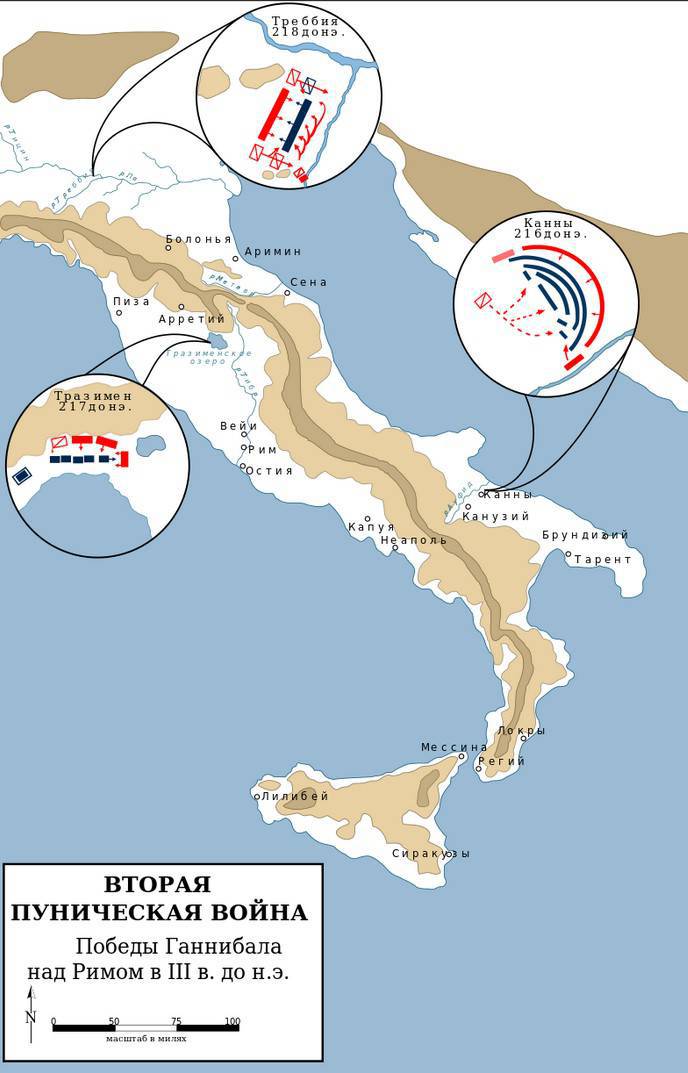
The unconditional manifestation of the leadership talent of Hannibal is nothing to discuss here. I would only like to draw the attention of dear readers that the style of the military art of Hannibal - the laying of ambushes - begins to take shape from this battle.
It also makes no sense to analyze the Battle of Lake Trasimene in detail, everything has been described and analyzed for a long time, I will only note that after this battle Hannibal is increasingly beginning to succumb to his main opponent in the middle stage of the Second Punic War, the Roman dictator Quintus Fabius Maxim Cunctator. Not daring to make an attempt to begin the siege of Rome, Hannibal allowed the Romans to use their most important resource - a much larger mobilization reserve, in modern terms.
And finally we reached the Battle of Cannes
What I would like to note, speaking of this battle in the context of this topic. Although ancient authors describe the course of the battle in the same way, there are some differences in their assessments. Rereading Polybius, I noted an interesting detail. In describing the course of the battle, Polybius 2 mentioned the name of Hannibal and 3 several times. The name of the commander of the left flank cavalry Hasdrubal (according to Titus, Libya Hasdrubal commanded the right flank). Even more interesting is the conclusion made by Polybius:
Anyone more or less familiar with military affairs and a reasonable person it is clear that at the end of one battle such far-reaching conclusions are not drawn. And I think Polybius understood this perfectly well. But Polybius put his conclusion at the end of the description of the battle. Why did he do it? I think, then, that he would like to hide one nuance of the battle. What exactly is the nuance? In this we will try to understand when it comes to Polybius.
Titus Livius outlined his attitude towards the Battle of Cannes in two ways: with a hidden hint and an open opinion. He only mentions Hasdrubal once, Hannibal mentions only in connection with the phrase he allegedly said, but describes in detail the death of the Roman consul Lucius Emilia Paul. Refer to its text:
I think everyone understands that in a battle, conversations in such an elegant style do not lead. But Titus Livy inserted this dialogue into his essay. Readers may ask me: why? The answer is: in this way, Livy expressed his opinion about who exactly is the culprit for the defeat of the Romans. The words of the military tribune of innocence, Emilia Paul, and the words of the consul about his unwillingness to be the accuser of a colleague, tell us that Livy considered the second consul to be the culprit for the defeat of the Romans - military warrant incompetent Guy Terentia Varro. And in the conclusion of the XXII book of his work Livy already directly writes:
The battle of Cannes was the pinnacle of Hannibal’s impressive, but very short, successful military career. Immediately after the battle between Hannibal and his hipparch Magarbal, a disagreement occurred during which Magarbal dropped Hannibal with a rebuke, which can be considered a moral verdict to Hannibal as commander. Titus Livius tells about it this way:
Refusing to go to Rome and begin a siege, Hannibal did not just make a mistake. By his decision, he crossed out all his victories and, figuratively speaking, with his own hands gave the strategic initiative to the enemy. Without attempting to siege and take Rome, the very invasion of Italy lost all meaning. It is unlikely that Hannibal did not know about the war of Pyrrhus in Italy, sources claim that he knew. And without a doubt he knew about the battles of his father, Hamilcar Barka, with the Romans. Did he really think that two defeats, even very cruel ones, would make the Roman Senate sign a surrender? Did he seriously think that when he heard about the defeats of the Romans, the Italians would rush headlong to sign up for his army? Indeed, after the battle of Cannes, many Italic tribes were deposited from Rome. But, as subsequent events showed, they did this with the goal of regaining their status before the establishment of Roman rule in Italy, and not at all to shed their blood for the Carthaginians.
From the moment of the battle of Cannes to the departure of Hannibal from Italy, 13 years passed. Exactly the same number of rules Macedonia, Alexander the Great. But Alexander in the 13 years of his reign conquered the territories of modern: Bulgaria, Greece, most of Turkey, Syria, Lebanon, Israel, Palestine, Egypt, Iraq, Iran, Afghanistan, Tajikistan and Pakistan. Perhaps part of the conquest was too hasty, but the overall scale is impressive. In 312 BC Seleucus with 1 thousand soldiers returned to the capital of his satrapy - Babylon. After 11 years, he already controlled most of the Macedonian conquests in Asia, had an army, one of the strongest among the armies of the Diadochi and the most numerous elephantery, which ensured him victory in the battle of Ips and the honorary title of the Winner. Antioch III, a contemporary of Hannibal and a very mediocre warlord, was defeated in the battle of Rafia in the year 217, but over the years 15 managed to strengthen his kingdom and take revenge. Guy Julius Caesar conquered Gaul in a little less than 14 years and brought the Roman Republic to its knees. Since Wikipedia compares Hannibal with Napoleon, you can say a little about the latter. For all the time of his reign, which is almost equal to the duration of the Second Punic War, Bonaparte established control over most of the European continent, and in 1812, he even reached Moscow.
Now let's see how Hannibal used such a long time? And here we are waiting for disappointment. Nothing great and brilliant for these 13 years, Hannibal did not commit. In 211, he approached Rome with his army, but again did not dare to begin the siege. All the military activities of Hannibal has been reduced to numerous, but insignificant clashes with the Romans, waiting for reinforcements from their brothers. And his enemy, meanwhile, wasted no time. At first they brought Sicily under control, then they began to invade Spain and 206 BC. er expelled the Carthaginians from it. The conquests of the father of Hannibal, Hamilcar Barca were lost. In 207 year BC. er the brothers Hannibal, Hasdrubal and Magon were defeated by the Roman consuls Marc Livius Salinator and Guy Claudius Nero in the battle of Metaurus. The strategy of Hannibal suffered a complete collapse, there is no hope for victory. In 204 year BC. er the Romans landed in Africa. The most important ally of Carthage, the king of Massinissus of Numidia, came to their side. Carthage Gerus sent an order to Hannibal to return home.
Here we come to the final battle of the Second Punic War - the battle of Zama
First, I will express my opinion, and then I will quote Polybius and Titus Livia a little. In the battle of Zama, Hannibal showed himself not at all the “father of strategy,” this isn’t even the case. He showed himself more like a “stepchild of tactics,” putting battle elephants against the front of the Roman infantry. But by that time it was already known that war elephants are most effective against cavalry and chariots. In the battle of Ips, Seleucus Nicator, throwing his elephants against Demetrius's cavalry, cut her off from the phalanx of Antigone, which allowed the coalition army to surround and defeat her. In the "battle of the elephants," the son of Seleucus, Antiochus I Soter, and his adviser, the Rodian Theodot, whom no great commanders consider any, also won a victory over the numerically superior Galatians by putting the elephants against cavalry. Hannibal also acted in the battle of Zama in the spirit of his opponent in the battle of Cannes - Guy Terentius Varro. He tried to break through the center of the Roman army, but left the flanks and rear uncovered. He put the elephants in the rear of his infantry, the enemy cavalry was more difficult to make his attack.
In Wikipedia, in the article on the Battle of Zama there is an original passage, which I will quote:
Well, how did the ancient authors evaluate the actions of Hannibal? And here we are faced with an interesting phenomenon. There are at least as many apologetics, if not more than when they assessed the battle of Cannes. Here is Polybius:
When you read these lines, two thoughts involuntarily come to mind: 1) if Hannibal is the "father of strategy", the greatest military leader, then who is his winner Publius Cornelius African Scipio? 2) Oh, and the slow-witted man was Hannibal! And why did he, in Ephesus, say that the long-dead Alexander the Great was the greatest commander? I would say that the greatest commander was Roman Guy Terentius Varro, and the fact that he suffered a defeat at Cannes was the evil fate and envy of the gods. And Scipio would have nothing to say.
Consider now the estimate of Titus Libya:
As we can see, the estimates of Polybius and Titus Libya are almost the same, except for one detail. Greek Polybius allegedly assesses the actions of Hannibal on his own, and Livy explicitly points out that this is an estimate of Scipio African and his entourage. It is possible that this assessment was contained in the report of Scipio to the senate. If so, then there is nothing surprising in praising Hannibal Scipio. After all, praising Hannibal, he, thereby glorifying himself.
The last years of Hannibal’s life look strange to a great commander. He wandered from one courtyard of the Middle Eastern dynasty to another, never lingering anywhere and not receiving recognition worthy of his fame. If he was given instructions, they didn’t correspond to the reputation of a well-known commander, - the deputy navarkha, the head of the construction works. It is not known why he left a distant and relatively safe Armenia and moved to closer to Rome, and, therefore, more dangerous Bithynia? It is not known, did the Romans themselves find him there, or did the King of Vitha decide to extradite him? Answers to these questions, we most likely will never get. What is important is another, the star of Hannibal faded away, and, it would seem, you could forget about him. But he was not forgotten. And the merit of this is the Greco-Roman historians, above all Polybius and Titus Libya. Both that and the other had their own reasons for glorifying Hannibal, even when the facts did not oblige them to do so.
Polybius was a Greek, but he lived in Rome for many years and was close to Publius Cornelius Scipio Emilian of Africa (Junior) Numanti and was part of the last literary and philosophical circle organized by him. Scipio Emilian himself was the grandson of Lucius Emilia Paul, the consul of Publius Konelia Scipio, who died in the battle of Cannes, and the adopted son of Publius Konelia Scipio, son of Scipio the African Elder and the Roman historian who wrote the history of Rome that did not reach us in Greek. It is very likely that Polybius used this work extensively when writing his "Universal History". The proximity of Polybius to Scipio Emilian explains the reason for the historian’s apologetic attitude towards Hannibal. Glorifying Hannibal, Polybius, thereby, glorified the name of his patron.
As for Titus Livia, his motive was different. Early life Libya passed during the brutal civil war between Pompeyans and Caesarians. The Roman Republic, whose patriot was Titus Livius, was coming to an end. There was less news about the victories of the Roman legions over the enemies of Rome, but more and more often there was news of the victories of the Romans over the Romans. Livy condemned this state of affairs. He saw the ideal in those times when the Republic was in a state of unity and was not torn by rifts. And the era of the Second Punic War was such a time. Therefore, praising Hannibal, Titus Livius praised not only the valor of the ancestors who had won the "conqueror", but also gently expressed his critical attitude towards modernity.
So, we conclude: Hannibal, undoubtedly, was an outstanding, very talented commander. But he was not more talented and brilliant than Seleucus I Nicator, Antigonus I Monophthalmus, Demetrius I Poliorket, his father, Hamilcar Barca, Scipio Africanus, Guy Marius and Lucius Cornelius Sulla, therefore adorning the epithets, like "father of strategy", " the greatest "seem inappropriate. As well as mentioning only his name in the relevant sections of textbooks on the history of military art.
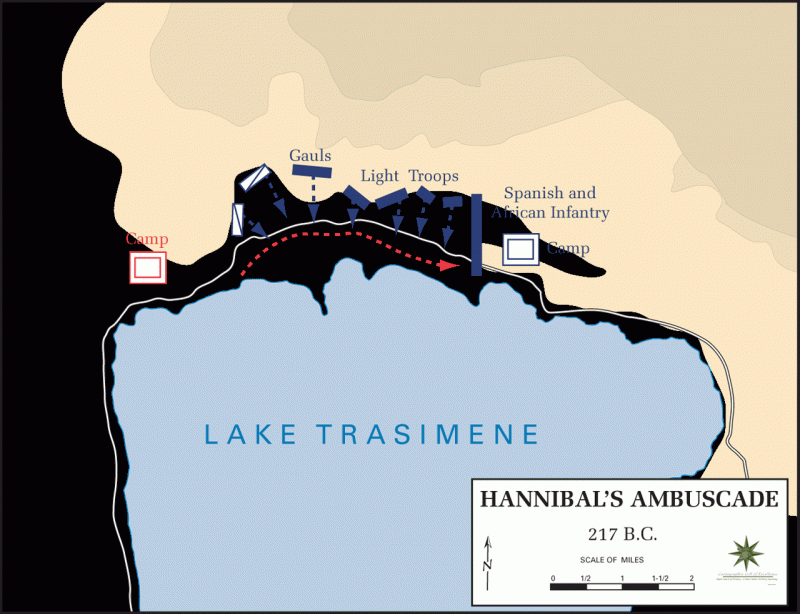
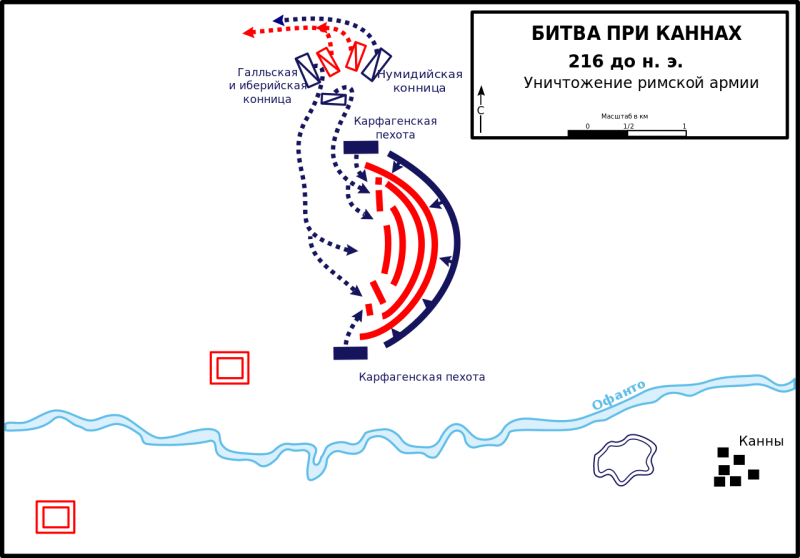
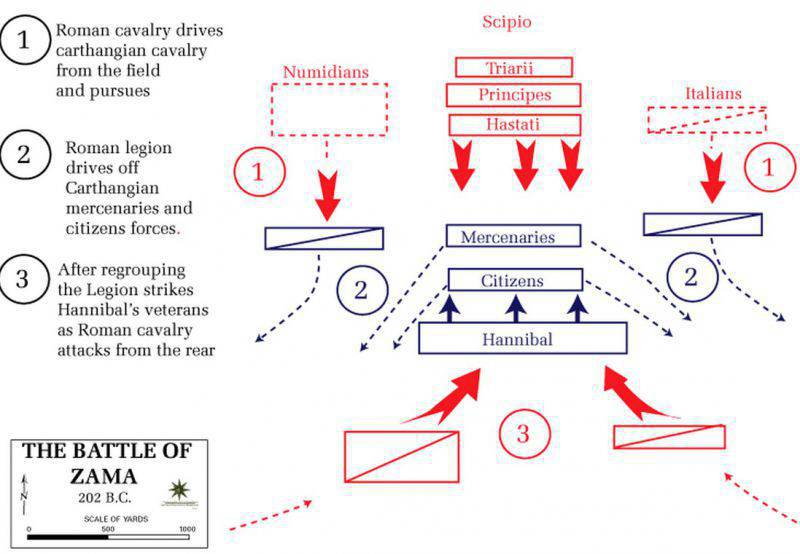
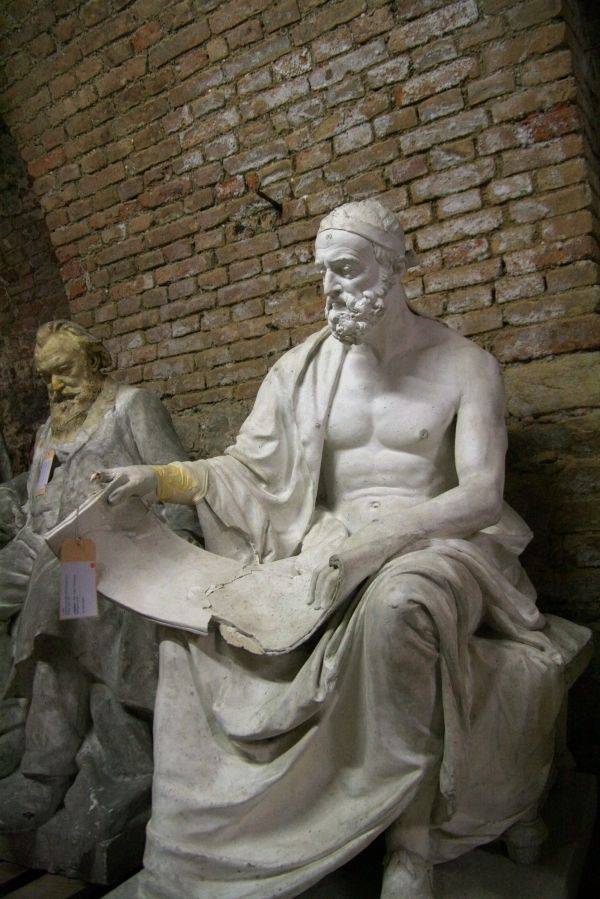
Information